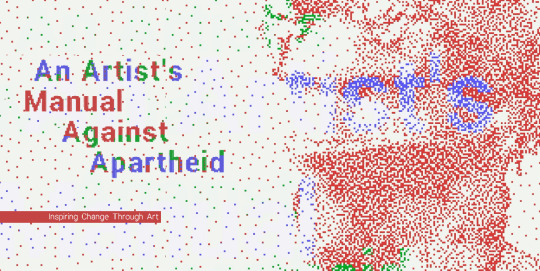Activism, Society and Green related issues > a real mix of finds and whatever connects *NB: ALL TEXT FROM THE ORIGINAL SITES*
Don't wanna be here? Send us removal request.
Photo

If you’re planning to hit the streets, here’s what you need to know. (via Protesting Tips: What to Bring, How to Act, How to Stay Safe | WIRED)
0 notes
Photo

While the ethical and professional thing to do five years ago would have been to donate them to charities or friends, now the expectation is that we will sell them online and wait for them to make us our fortune. (via Eva Wiseman: Do we actually need to sell our old clothes?)
0 notes
Text

“We want Baldío to be a model that shows it’s possible to be both zero waste and to rely on farmers rather than supermarkets.” (via ‘It really is possible to be zero waste’: the restaurant with no bin | Food waste | The Guardian)
0 notes
Text

Why do images and reports of starving and malnourished Africans appear so often in the media? What are the actual dimensions of the problem? What has trade and climate got to do with it? (How Africa Eats | LSE Press)
The book: [PDF] How Africa Eats | LSE Press
0 notes
Text

The Artist’s Manual Against Apartheid (AAMAA) is an open-source resource equipping artists and cultural workers with tools for creative resistance. Through practical guidance, reflective exercises, and digital activism strategies, AAMAA empowers individuals to challenge oppressive systems and reimagine a just world. (via An Artist's Manual Against Apartheid)
Extra info: Until the lions have their historians… - Counterpoints
0 notes
Text

What’s remarkable about the best post-apocalyptic narratives is what they do with their initial premise — what kind of stories they launch from the springboard of global catastrophe. (via A Brief History of the End of the World - Electric Literature)
0 notes
Text

Just as the U.S. has long been the global economy’s chief cultural exporter—from Coca-Cola to Mickey Mouse—it’s conceivable that we are disseminating throughout the English-speaking world a highly neurotic and individualistic approach to mental health, which is raising the salience of anxiety and depression for young people spending hours every day marinating in English-speaking media. (via America’s Top Export May Be Anxiety - The Atlantic)
See also Is The Rest Of The World 'Crazy Like Us'? : NPR
0 notes
Text

The Japan chapter details how by deploying its colossal marketing might to sell the antidepressant drug Paxil, pharmaceutical firm GlaxoSmithKline introduced a version of depression into the culture that had not previously existed. He traces how the company capitalised on an upward trend in suicide that, coupled with economic instability, had caused Japanese society to question its response to crises. (via How the west won mental health thinking | Mental health | The Guardian)
To make Paxil a hit in Japan, it would not be enough to corner the small market of those diagnosed with utsubyô. The objective was to influence, at the most fundamental level, the Japanese understanding of sadness and depression. In short, they were learning how to market a disease. (via Exporting Depression | Mad In America)
See also Crazy Like Us: The Globalization of the American Psyche: r/PsychotherapyLeftists and Depression in Japan | Princeton University Press
#depression#Japan#mental health#big pharma#Crazy Like Us#nonfiction#GlaxoSmithKline#Paxil#Ethan Watters
0 notes
Photo

In Families Like Ours, we're confronted with a terrifyingly realistic prospect, as rising sea levels threaten to overwhelm the country of Denmark. The nation's population are about to be evacuated - however the public have no idea of what is about to happen. (via “Unnervingly believable”: Scandi thriller Families Like Ours is a mind-blowing "look into the future")
Created and directed by filmmaker Thomas Vinterberg, the seven-part series imagines a catastrophic climate-crisis scenario for one of the world’s most stable and affluent societies. (via Families Like Ours TV review — what if a whole country had to be abandoned? | Financial Times)
0 notes
Text

When a family member’s medicinal marijuana use inspired her to dip her toes into the world of weed, Chong reacted to the racism she witnessed there by launching a successful stock photo agency dedicated to realistic portrayals of cannabis culture. That led to her current and most passionate pastime yet—helping others heal trauma and create their own visuals by studying and growing psychedelic plant medicine. (via Ophelia Chong on The Great Discontent (TGD))
0 notes
Text

...the 4R Planet Strategy – a simple, comprehensive approach that our world-leading experts believe is the only path that can deliver a safe and manageable future for humanity:
Reduction: Tripling emissions reductions in developed nations to limit warming.
Removal: Massive investment in carbon removal technology and nature-based solutions.
Repair: Research into safe, manageable ways to repair damaged climate systems.
Resilience: Comprehensive action to strengthen our capacity to deal with climate impacts and threats.
(via CCAG Website)
1 note
·
View note
Text

Climate action requires significant financial investments by governments and businesses. But climate inaction is vastly more expensive. (via What Is Climate Change? | United Nations)
0 notes
Text

This new kind of science was designed to improve public understanding as much as deepen scholarly knowledge. It’s necessary, because the biggest gap in climate communication isn’t between people who heed science and people who disregard it, says Katharine Hayhoe, chief scientist at the Nature Conservancy. It’s between those who think climate affects only other countries and future generations and those who understand that it already affects them. (via How Climate Scientists Do Extreme Weather Attribution - Bloomberg)
#climate change#green issues#weather attribution#weather#evidence#proof#Friederike Otto#World Weather Attribution
0 notes
Text

Climate Injustice shares the stories of real people, shining a light on the real damage inflicted on real lives. Above all, it shows how racism, colonialism, sexism, and climate change are interconnected, and how positive changes on one level can lead to positive effects on another. (via Climate Injustice – Greystone Books Ltd.)
See also: The main thing I have learned from extreme weather events is that the climate crisis is shaped largely by inequality and the still-undisputed dominance of patriarchal and colonial structures, which also prevent the serious pursuit of climate protection. By contrast, physical changes such as heavier rainfall and drier soil have only an indirect effect. In short, climate change is a symptom of this global crisis of inequality and injustice, not its cause. (via Climate change is not just a problem of physics but a crisis of justice | Friederike Otto | The Guardian)
#Friederike Otto#nonfiction#climate change#inequality#green issues#Climate Injustice#books#World Weather Attribution
0 notes
Text

Woke – a term once used by African Americans to denote people who were alert to racism and social injustice – has been retired. (...) Today, the person using the word is likely to be a rightwing culture warrior angry at a phenomenon that lives mainly in their imagination. (via The struggle for equality is real. The ‘woke police’ are a myth | Afua Hirsch | The Guardian)
0 notes
Text

In Underdogs he [Joel Budd] offers a sharp corrective to the familiar stereotype of the white working class. It describes a hugely diverse group of people that is driving social and cultural change, not just grumbling about it. (via Underdogs by Joel Budd - Pan Macmillan)
See also: "Many of those who act as the champions of the white person against immigrants,” Labour MP David Winnick told the House of Commons in 1968, “have not in the past gone out of their way to defend the interests of the white working class.” (via The white working class is nothing like what politicians think – or claim – it is | Kenan Malik | The Guardian)
0 notes
Text
We report socially relevant and uplifting stories of progress – ranging from the global boom in renewable energy to cities that are solving homelessness – joining the dots between how people, communities and organisations are changing the world for the better. (via Positive News | Good journalism about good things - Positive News)
0 notes